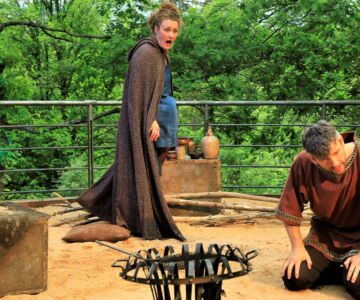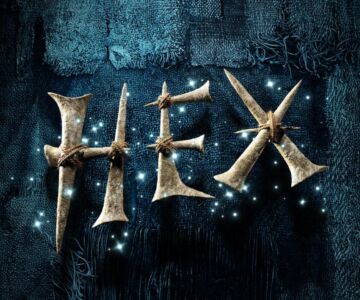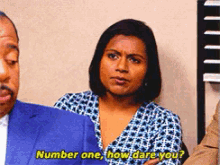 Tree at the Young Vic: A Maddening Take on Theatreby Randi / August 15, 2019
Tree at the Young Vic: A Maddening Take on Theatreby Randi / August 15, 2019It’s Theatre Thursday! Today we are talking about a theatre documentary film that will be in select theatres tomorrow, August 23.
Few musicals have the staying power and continued resonance of Fiddler on the Roof, the 1964 musical about Tevye the poor milkman, his wife Golde, their five daughters, and their struggles as Jews in their tiny village of Anatevka at the turn of the century. After all these years, it’s hard to imagine a world without this miraculous piece of theatre, and the new documentary Fiddler: A Miracle of Miracles, from director Max Lewkowicz, shows us how fortunate we are that all the pieces came together as they did. The amount of jaw-dropping names that appear throughout the doc exuding praise over this classic musical is endlessly entertaining. Featuring interviews with composers Sheldon Harnick and Jerry Bock, book writer Joseph Stein, producer Hal Prince (to whom the film is dedicated; he died just a few weeks ago), and tons of actors, writers, experts on cultural studies, journalists, and family members of the creative team, this Fiddler does the unthinkable and makes the musical even more special.
Interspersing footage of various productions, the classic film version, and even footage of Aleichem’s silent films with interviews, the doc provides interesting historical context and testimony as to why it’s such a lasting show. Joel Grey, Lin-Manuel Miranda, Harvey Fierstein, Fran Leibovitz, Itzhak Perlman, and endless amazing historians and writers share worthy thoughts on what makes Fiddler still resonate.
Everyone today loves Fiddler, and for dern good reason, but it opened to surprisingly bad reviews. Variety even wrote that there were no memorable songs, a statement that is beyond ludicrous for a show without a single weak moment and a widely known and widely loved score (okay except for “Now I Have Everything”). But it took a lot of hard work to create the final masterpiece, as Harnick, Bock, Prince, the original actors, and their relatives and those of Jerome Robbins share. H&B got the idea to write a show inspired by Russian-Yiddish author Sholem Aleichem’s short stories, narrowing their idea down to the story of Tevye the milkman and his daughters in turn of the century czarist Russia. They faced a lot of obstacles in the early days from people who, rightly so, heard this idea and went, ‘are you crazy?’ Who would see a musical based on such a niche story that will likely be super depressing? But this genius team turned this depressing, niche story into one that’s as heartwarming as it is heartbreaking, and one of the most relatable pieces in the canon, since at any time in history, people have been oppressed. One of the best stories is when during intermission of a Japanese production, an actor asked if Americans actually enjoy the show since “it’s so Japanese.”
I could talk forever about how wonderful this documentary and Fiddler itself are, but Ima let you discover some things for yourself because I hope you are seeing it, if you are near a theatre playing it. However, I do want to share a few of my favorite discoveries with you.
A few things I learned from the Fiddler Documentary
The idiot defense attorney from My Cousin Vinny was Broadway’s original Motel the Tailor
Now look, I’m not reducing Austin Pendleton’s stellar theatre career in calling him the bad lawyer from MCV; I just never realized that that was him until I was watching this doc, okay? I wish I could have seen him in this role!
There’s a Sholem Aleichem statue in Kiev.
Oops.
I don’t think I love any move more than Danny Burstein’s Tevye Shimmy
If you read my review of the 2016 Broadway revival of Fiddler, then you know how I feel about Danny Burstein’s Tevye and, above all, Tevye’s Lil Shimmy. With a solid amount of footage from this production interspersed throughout, we get to see a few of his positively delightful shimmies and I couldn’t be happier. (I put a clip of what I’m talking about in my instagram stories today, and it will be saved in the 2019 Theatre highlights so you can enjoy the Burstein Shimmy FOREVER.)
Jerome Robbins and Zero Mostel were not BFF
Although an undeniable genius, Jerry Robbins was extremely difficult to work with, and Zero was not a fan. During Joe McCarthy’s (more like McCunther (“that cunther made a list???”)) Senate hearings for Trying To Find Commies and Destroy Careers, Robbins named names, like the one thing you were not supposed to do if you wanted to still be considered Not An Asshole. But as always, it’s not as simple as that. McCunther S. Prick and his cronies threatened to out Robbins as a gay man if he didn’t cooperate, and back then that would have been a serious problem. They say he always regretted it afterwards, which like of course, but it wasn’t exactly a black-and-white situation. He was still an asshole to actors and others on set though, and no amount of genius can excuse that away, but he was a g-d genius.
The original Tradition lyrics were hilarious
Luckily, H&B perfected everything before the show was frozen, but we saw an early CBS television appearance of theirs in which they sang a song to the tune of what would later become “Tradition”: “There’s noodles to be made, and chickens to be plucked, and liver to be chopped and challah to be baked.” It’s a good change, it’s a goood change.
Every character has a name – like every character
Despite my assumption that my ensemble role in high school was just ‘one of the village daughters’, she had a specific name. In the original rehearsals, Jerry Robbins named every ensemble character and treated them all as integral parts of this show. So there’s a good chance I was actually playing Anya or Rivka, to name two I saw when they showed his original sketches, which is prettay prettay cool.
Jerry Bock says ‘ambience’ so amazingly
Not really a thing just wanted to remember how cute it is for him.
Yiddish Fiddler includes the best line ever
Currently in New York there is a Joel-Grey directed production of Fiddler being performed entirely in Yiddish, and receiving critical acclaim. The doc shows a snippet of the recording session for its album, in which Steven Skybell sings the Yiddish version of “If I Were a Rich Man”. The subtitles show us that these lyrics include just the best thing ever to exclaim probably at any point in your life: “Jews, I laid an egg!”
Marc Chagall’s work inspired the title and thematic elements of Fiddler
You know the Chagall painting with the violinist in a purple coat floating between two rooftops? Well helloooo, that’s the fiddler on the roof! Chagall’s work inspired the creators in establishing that central thematic element of the difficulty of finding balance between tradition and progress in a changing world, balancing like a fiddler on the roof. The Fiddler in the movie version is even wearing a purple coat. After learning more about Chagall in the show The Flying Lovers of Vitebsk, I imagine Chagall would have loved this show and the homage it pays to the plight of Jews in Russia during this era.
There’s so much information and emotion jam-packed into this beautiful film and I want to rave about all of it (like, did you know The Temptations covered “Rich Man”? It’s so fun) but definitely go see for yourself. And if you have to wait longer until it comes to your town or for it to be available for purchase, spend that time listening to one of the many great cast recordings. Or better yet, go see a local production. Chances are you’re near one, whether a regional theatre or a middle school, because the most heartwarming, unbelievable fact shared in the film is that, since debuting in 1964, a production of Fiddler has been performed somewhere in the world every single day, a fact that proves just how incredible and indelible this musical’s mark is on the world.






